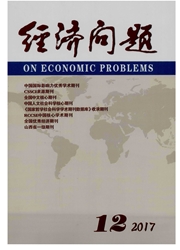

 中文摘要:
中文摘要:
不同的研究文献对城镇化与经济增长序列是否平稳、是否存在协整关系给出了不同结论,而且不同的文献使用不同指标来表征城镇化与经济增长,并使用不同的模型形式进行实证研究。那么不同类型指标与模型选择是否会影响分析结论?城镇化与经济增长是否客观上存在长期均衡关系?使用1978—2011年的相关数据进行实证分析后发现,不同指标和模型选择将会对模型结论产生重大影响,甚至会得出相反结论。
 英文摘要:
英文摘要:
Different conclusions was gave by different researcher about whether urbanization and economic growth are constant data, and co -integrated, at the same time, different papers used different indexes to express urbanization and economic growth, and use different empirical models to carry on their studies. So whether could different indexes and models affected the outcomes of empirical test? And whether is there a long equilibrium - term relationship between urbanization and economic growth? Using the data of China from 1978 to 2011 and empirical methods, the outcomes express that different indexes and different empirical model have manifest affection on the conclusion, and sometimes, can give a completely contrary conclusion. So, the long equilibrium - term relationship between urbanization and economic growth deserve to doubt.
 同期刊论文项目
同期刊论文项目
 同项目期刊论文
同项目期刊论文
 期刊信息
期刊信息
